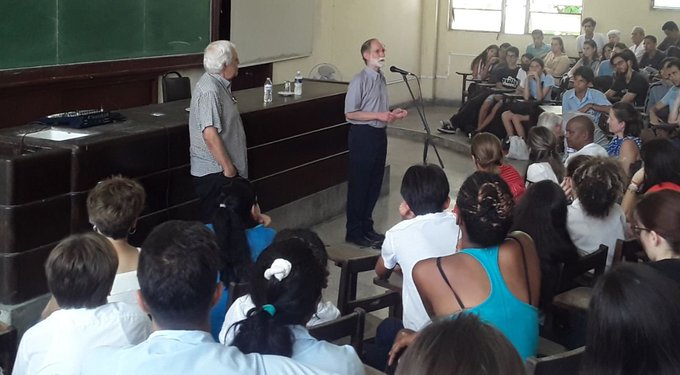The American scientist praised the social orientation of health services in Cuba, the achievements in biotechnology and the training of doctors for overseas at the Latin American School of Medical Sciences (ELAM), from which 30,636 students from 120 countries have graduated.
Agre dedicated his latest research to ease the impact of malaria in tropical countries, mainly in Africa, and observed the way in which doctors trained in Cuba, fight a disease that can leave terrible consequences in adults and children.
Hence, he considers that many of his students from the renowned John Hopkins University would be interested in studying in Cuba.
He stressed that Cuba may not be perfect, but despite the most diverse material difficulties, it puts the human being at the center.
“Although the barriers of the United States blockade are a problem, the young Cuban scientists are great, added to friendships and professional ties, all of this motivates me to be here,” Agre told the Cuban News Agency.
After being appointed as new Corresponding Member of the Cuban Academy of Sciences, he expressed optimism about an improvement in diplomatic relations between Washington and Havana.
“It would be a great opportunity for researchers from both sides to work together,” he said. In his words, scientists “are ready for it,” Agre told Prensa Latina in 2017. “From my point of view, the most important thing is collaboration among young scientists, so that North Americans go to Cuba and those from there come to the United States.”
jrr/llp/ro/joe










